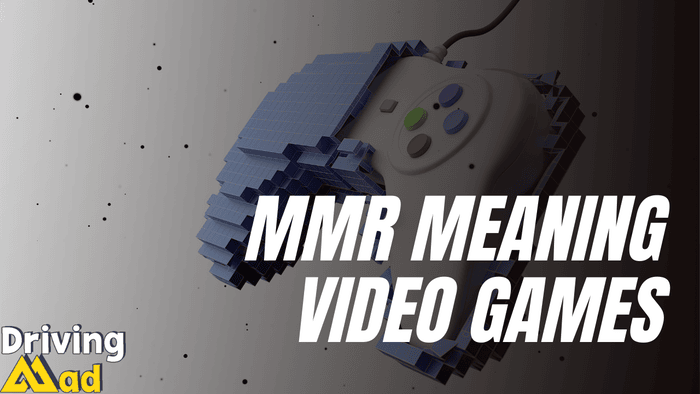MMR, also known as Matchmaking Score, assigns a numerical value to evaluate a gamer’s proficiency in competitive play.
The system creates balanced matches by pairing participants with similar skill levels.
Greetings, challengers and rank enthusiasts! Gamers constantly discuss MMR, a concept that shapes online matchups.
No, it’s not an upgraded gadget or a graphical boost—it actively measures skill and influences matchmaking.
Let’s break down the Matchmaking Score and see how it works!

What Is MMR in Games?
MMR, or Matchmaking Rating, measures player skill levels through a hidden metric. Rather than assigning grades, it predicts a player’s chances of winning against opponents.
To maintain fair competition, MMR matches players with similar skill levels. Without it, beginners might struggle against seasoned players, while experts could face little challenge.
By balancing matchups, MMR enhances the gaming experience.
The Meaning Behind the Term
The notion of measuring player performance has been around for a long time. Arpad Elo designed the system for ranking skills in the 1960s, and chess soon adopted it.
As online-based entertainment flourished, creators devised techniques to connect participants appropriately at the exact moment.
Competency-based assessment (MMR) started gaining recognition at the beginning of the new millennium as competitive virtual challenges progressed.
Strategic team-based battles, such as Ancients’ Battleground (DotA) and Legends’ Arena (League of Legends), were vital in popularizing this approach.

How MMR Works
MMR varies from game to game, but the core principles remain consistent.
- Initial MMR: All new players start with a baseline matchmaking rating.
- Impact of Wins and Losses: Victories raise MMR, while defeats cause it to drop.
- Opponent Strength: Overcoming stronger adversaries grants a more substantial MMR boost than triumphing over weaker competitors.
- Adjustment Phase: New players experience more significant MMR fluctuations in the beginning.
- Visibility: Certain titles reveal matchmaking ratings, whereas others conceal them and only showcase player tiers.
- Cooperative Competitions: The framework ensures fairness by harmonizing the collective skill levels of both squads.
- Evaluation Criteria: Various titles measure personal accomplishments beyond just the overall outcome.
Popular Games That Use MMR
A variety of competitive titles utilize rating systems to create fair matchups. Below are some prominent examples:
- League of Legends: Utilizes MMR to determine match pairings and monitor ranking advancements.
- Dota 2: Reveals a noticeable skill rating figure in competitive games.
- Overwatch: Employs a covert performance metric alongside a publicly shown proficiency score.
- Counter-Strike: Global Offensive: Applies a version of the Glicko-2 system for ranking.
- Rainbow Six Siege: Ranks are calculated based on skill ratings in ranked matches.
- Rocket League: Pairs competitors through a proficiency-driven ranking system.
- Valorant: Utilizes a covert skill assessment mechanism alongside openly shown tiers.
- Hearthstone: Employs a skill-rating system for competitive match assignments.

Related Terms
While exploring MMR, you could encounter the following phrases:
- Elo: A ranking method inspired by chess that shaped numerous matchmaking frameworks.
- Glicko and Glicko-2: Advanced rating models that measure ranking accuracy.
- Skill Rating (SR): Occasionally utilized as a substitute for MMR, though it may solely present a displayed tier.
- Ranked/Competitive Play: Gameplay types that heavily influence matchmaking through skill ratings include competitive shooters, ranked strategy games, and esports-based multiplayer titles.
- Smurfing: Elite gamers generate new profiles to challenge less skilled rivals.
- Boosting: A more skilled competitor enhances the ranking of a fellow participant.
- Calibration: A sequence of qualifying games to assess the baseline MMR.
- Decay: Various platforms steadily adjust the skill level of dormant users to preserve a dynamic ranking system.
Now that you grasp how matchmaking rating operates in gaming, remember that it’s merely a figure indicating your progression.
What truly counts is embracing the experience and sharpening your abilities. So, step into the game and unleash your full potential!

